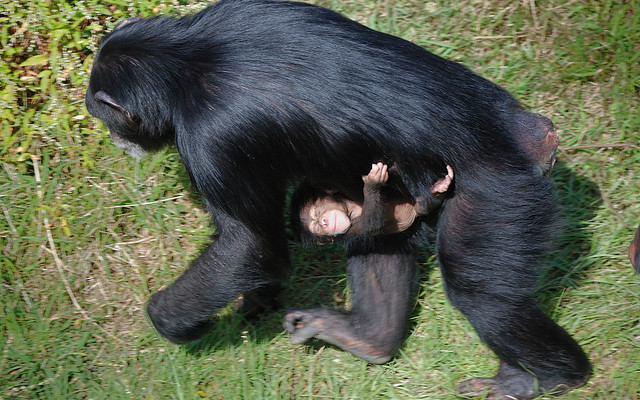Feeling really sad about news that hit the blogosphere this week -
Breastfed babies cry more and smile less not so much because of the content, the study or the outcome, but because of the glaring presumption the response is based on.
Can you guess?
No? Probably because we are all so inured to it that we no longer notice.
Cry MORE and smile LESS - than what?
Than bottle-fed babies, which are deemed the norm, that's who.
It happens all the time, in every media article and many promotional publications. The baseline that breastfeeding is measured against is the "normal" outcomes of bottle-feeding.
Breastfed babies have lower rates of ...
Breastfed babies are less likely to ...
Breastfeeding mothers have higher protection from ...
It seems we have become so complacent about the prevalance of artificial feeding that we have forgotten it is not the natural method of infant nutrition. We have come to consider breastfeeding as optional, superior, better ... best! When it isn't, it is just normal. The default method. The way every other mammal feeds its young.
Now, if this headline said "Bottle-fed babies cry less and smile more" it would be more accurate. Just as headlines stating "Formula fed infants have higher risk of (insert whichever "benefit" of breastfeeding you wish)" would be more accurate. But they don't, because everyone has forgotten the default.
And that is much to blame for the attitudes towards breastfeeding in the world.
And the world doesn't even realise it.
The impact of this means that we no longer know what normal infant behaviour is. That we are not told how modified cows milk formula is still cows milk and that was designed by Mother Nature to feed baby cows.
If I asked you to name some differences between cows and humans, I bet you wouldn't think of how their babies are raised. This is partly because you don't see a lot of naturally-raised calves today.
 |
| Ssh - nobody knows I am here |
A cow (or other herd-animal) eats grass, which is very low in energy, so she needs to eat pretty constantly. This grazing means she needs to walk around quite a lot. A newborn cow , however, feeds only on his mother's milk, so it makes more sense for him to conserve energy, rather than expend it unnecessarily wandering around after his mother. But a cow can hardly carry her baby as she grazes. Yet if you leave a sleeping calf lying in the long grass alone, you risk him waking and calling for his mother - and that would attract predators. Which is a dnager to the calf and the rest of the herd. So, the mother's milk is specially designed to sedate the calf, allowing him to sleep long periods between feeds, until he is older and can keep up with the herd more easily.
 |
| In arms reach |
A human (or other primate) eats fruits,vegetables, leaves, grasses and berries.( And meat, in some species, including our own. Primates are nomadic animals, moving as they eat during the day and setting up a nest to sleep where they are at night. Primates also have hairy chests and their young have a strong gripping reflex to hold onto their mother, so she can easily graze AND care for her baby. And when the baby isn't clinging-on, the mothers has arms to carry him. A heavily-sedated infant would not be able to cling on and react to the mother's changing position as she moves and they need to rouse quickly when they need to feed. This can be as frequent as every hour in some species! The baby is then soothed back to sleep by his mothers moving body. Grazing is not something the mothers needs to stop doing to feed her infant.
Cows milk is by no means the most similar to human milk and is not actually a logical choice to replace it. But cows, goats and sheep ARE animals that were easily domesticated and so their milk was at hand when formula was first invented.
 |
| Newborn chimpanzee |
So, it makes sense that when you feed a human infant the milk designed for a baby cow, the baby will behave more like a calf than a human: he sleeps long and deep, going longer between feeds and being quickly sedated by them. And in our modern world, these have become desired traits in our young, as we no longer graze with our babies clinging to our chests and we have many more activities in daily life than other primates.
But that does not make that behaviour normal. Or healthy. But it is easy to sell.
 |
| Sleeping like a baby ... but what type of baby? |






No comments:
Post a Comment